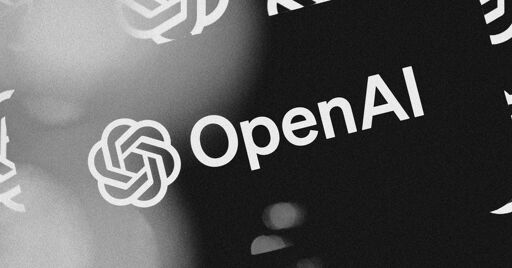Scientists make game-changing breakthrough that could slash costs of solar panels: 'Has the potential to contribute to the energy transition'
-
No, the opposite. They are superior. Bifacial panels have a 3% additional yield over standard panels. The +10-20% cost premium is covered by the +30% revenue
Even with traditional mountings, Bifacial panels pick up extra light reflected from the ground.
Bad read on my part, sorry for the snark. Carry on.
-
Bad read on my part, sorry for the snark. Carry on.
No problem. Take a closer look a the link, particularly the graphs.
-
They need changes in laws too. Instead of chewing up open space and farmland I'd rather see more urban areas used like parking lots and industrial sites.
Roughly 50% of germany is used as farmland. On 60% of the farmland crops to feed livestock are grown. On 20% of it crops for energyproduction (biofuel, biogas).
If you take for example rapeseeds, used for biodiesel, you would harvest around 50 times as much energy with a pv-plant on the same area.
You would need to install pv on 5-6% of the farmland to produce enough electric energy for all of germany for a year. Granted you also can provide the grid for it and enoguh storage. -
I've been thinking about getting solar for a while, how bad is the efficiency loss at -30C to -20C?
They gain efficiency at lower temps. Cool, clear days are best. At negative 20C you're looking at ~15-20% increase in power output from the panel itself. Look for the "temperature coefficient" on a solar module spec sheet.
-
cross-posted from: https://slrpnk.net/post/24690127
Solar energy experts in Germany are putting sun-catching cells under the magnifying glass with astounding results, according to multiple reports.
The Fraunhofer Institute for Solar Energy Systems team is perfecting the use of lenses to concentrate sunlight onto solar panels, reducing size and costs while increasing performance, Interesting Engineering and PV Magazine reported.
The "technology has the potential to contribute to the energy transition, facilitating the shift toward more sustainable and renewable energy sources by combining minimal carbon footprint and energy demand with low levelized cost of electricity," the researchers wrote in a study published by the IEEE Journal of Photovoltaics.
The sun-catcher is called a micro-concentrating photovoltaic, or CPV, cell. The lens makes it different from standard solar panels that convert sunlight to energy with average efficiency rates around 20%, per MarketWatch. Fraunhofer's improved CPV cell has an astounding 36% rate in ideal conditions and is made with lower-cost parts. It cuts semiconductor materials "by a factor of 1,300 and reduces module areas by 30% compared to current state-of-the-art CPV systems," per IE.
at this point it doesnt matter. theres no saving us from extinction due to climate change. this serves only for the intermediate period where we can "save" some money on energy day to day, before the inevitable collapse that makes money and savings worthless.
dont get me wrong, if i could afford a house, let alone additional panels and the additional fees that come with installation, maintenance, regulations, licensing, etc. then id be all in, even if it was just to contribute to the dying ideal that there was some semblence of hope for a better future. this is up to the landlords and the upperclass to give a shit about, and most of it is for grandstanding and keeping up with the joneses.
i used to install these for a living during covid. only people in my area who could afford them were multigenerational farmers and eco concious suburbanites. even for the suburbanites living in million+ dollar homes it was a stretch financially, and a hastle due to regulations.
good idea. but a bit late. we are at the point that if someone waved a magic wand tomorrow, and everyone stopped driving cars and pulled a full 180 on coal, oil, and gas, it would still be far too late.
if you can afford the inevitable markup that comes with proffessional installation. be my guest. if you are a poor person wanting to slap some panels on a tiny home, go nuts. just dont expect to save the world by doing so. its fucked. live how you want to while you can. drink, fuck, fight, eat good food, play video games, bed rot and consume to your hearts content.
nothing can save us. not even the "indomitable will of the human spirit" not a god damned thing.
sorry to shit in your salad. but thems the breaks.
-
They need changes in laws too. Instead of chewing up open space and farmland I'd rather see more urban areas used like parking lots and industrial sites.
Yeah, Don't put the solar farms in meadows, or on mountains. put them on warehouse roofs, over highways, over parking lots, on government buildings, etc etc.
-
id guess a lot went into designing a solar cell that could take being heated to 167F without losing efficiency or breaking. I think most common house solar panels have a temperature coefficient listed on their datasheet that measures how much its ability to generate power decreases per every degree above 77F
Tech ingredients did a test with active cooling on standard solar panels and found the energy to cool it was about what was gained by having a cooler panel.
The upshot should be longer life if the panel though, so the conclusion was still a net gain.
-
Roughly 50% of germany is used as farmland. On 60% of the farmland crops to feed livestock are grown. On 20% of it crops for energyproduction (biofuel, biogas).
If you take for example rapeseeds, used for biodiesel, you would harvest around 50 times as much energy with a pv-plant on the same area.
You would need to install pv on 5-6% of the farmland to produce enough electric energy for all of germany for a year. Granted you also can provide the grid for it and enoguh storage.Not only that, but livestock can still graze under panels, on grass that often grows just as well with a little shade.
-
cross-posted from: https://slrpnk.net/post/24690127
Solar energy experts in Germany are putting sun-catching cells under the magnifying glass with astounding results, according to multiple reports.
The Fraunhofer Institute for Solar Energy Systems team is perfecting the use of lenses to concentrate sunlight onto solar panels, reducing size and costs while increasing performance, Interesting Engineering and PV Magazine reported.
The "technology has the potential to contribute to the energy transition, facilitating the shift toward more sustainable and renewable energy sources by combining minimal carbon footprint and energy demand with low levelized cost of electricity," the researchers wrote in a study published by the IEEE Journal of Photovoltaics.
The sun-catcher is called a micro-concentrating photovoltaic, or CPV, cell. The lens makes it different from standard solar panels that convert sunlight to energy with average efficiency rates around 20%, per MarketWatch. Fraunhofer's improved CPV cell has an astounding 36% rate in ideal conditions and is made with lower-cost parts. It cuts semiconductor materials "by a factor of 1,300 and reduces module areas by 30% compared to current state-of-the-art CPV systems," per IE.
That is Fraunhofer who are the people most responsible for developing MP3
-
Not only that, but livestock can still graze under panels, on grass that often grows just as well with a little shade.
Surely the grass would grow better with more son(?)
-
Surely the grass would grow better with more son(?)
Not always. Wide open fields get baked dry mid summer in a lot of local climates.
-
cross-posted from: https://slrpnk.net/post/24690127
Solar energy experts in Germany are putting sun-catching cells under the magnifying glass with astounding results, according to multiple reports.
The Fraunhofer Institute for Solar Energy Systems team is perfecting the use of lenses to concentrate sunlight onto solar panels, reducing size and costs while increasing performance, Interesting Engineering and PV Magazine reported.
The "technology has the potential to contribute to the energy transition, facilitating the shift toward more sustainable and renewable energy sources by combining minimal carbon footprint and energy demand with low levelized cost of electricity," the researchers wrote in a study published by the IEEE Journal of Photovoltaics.
The sun-catcher is called a micro-concentrating photovoltaic, or CPV, cell. The lens makes it different from standard solar panels that convert sunlight to energy with average efficiency rates around 20%, per MarketWatch. Fraunhofer's improved CPV cell has an astounding 36% rate in ideal conditions and is made with lower-cost parts. It cuts semiconductor materials "by a factor of 1,300 and reduces module areas by 30% compared to current state-of-the-art CPV systems," per IE.
The issue here in NL is with the power grid, not the price of the panels.
The installing of them is already one of the most expensive parts of getting panels since you need to build scafolding for most houses. -
Not always. Wide open fields get baked dry mid summer in a lot of local climates.
Yup, my grass does best under my trampoline.






